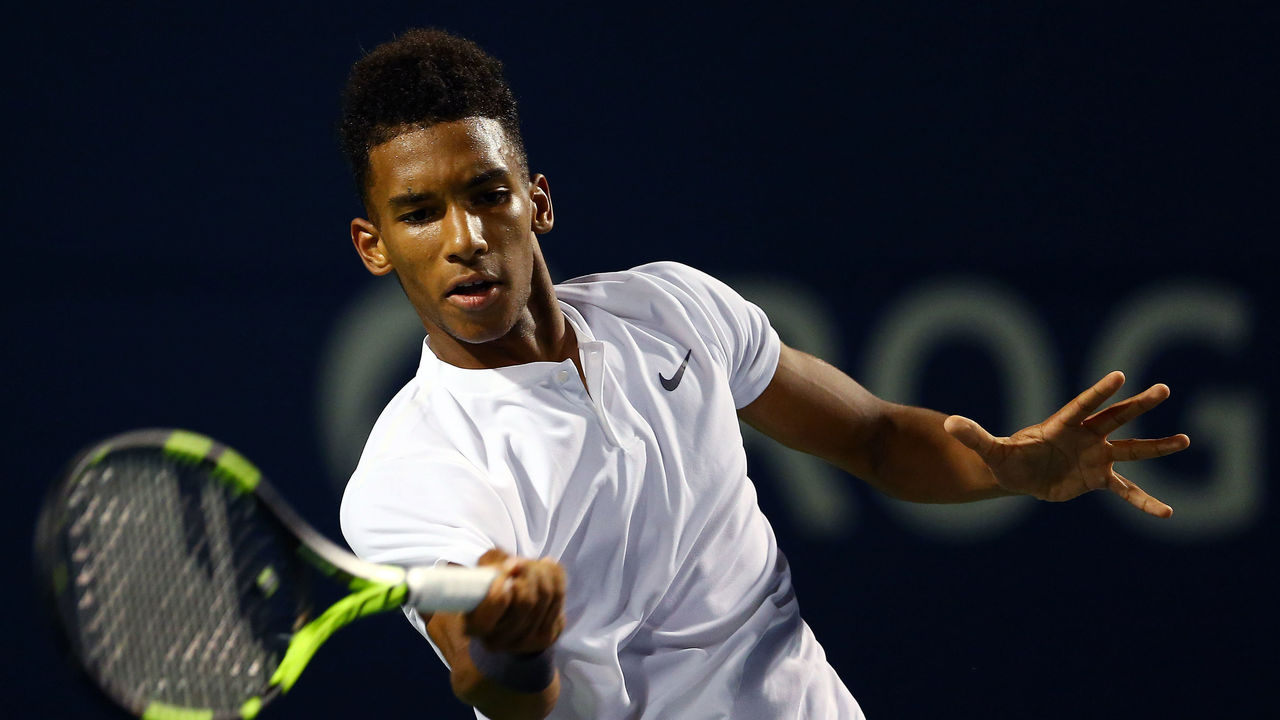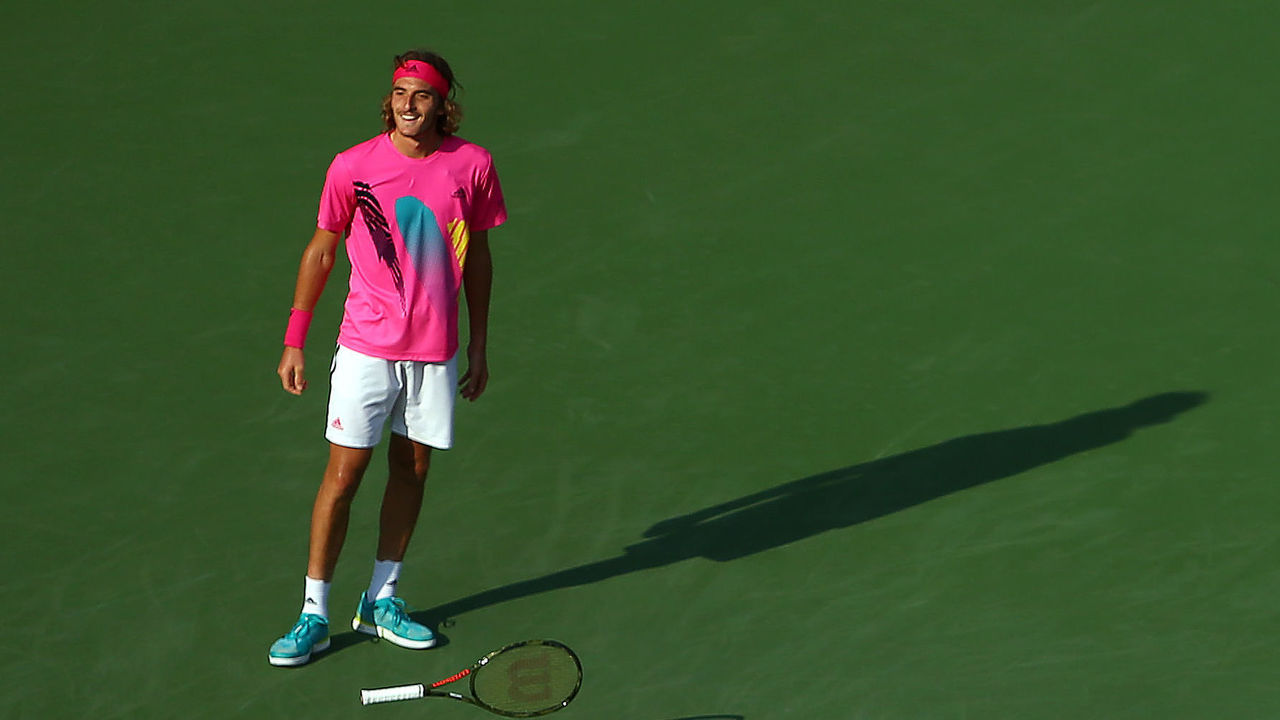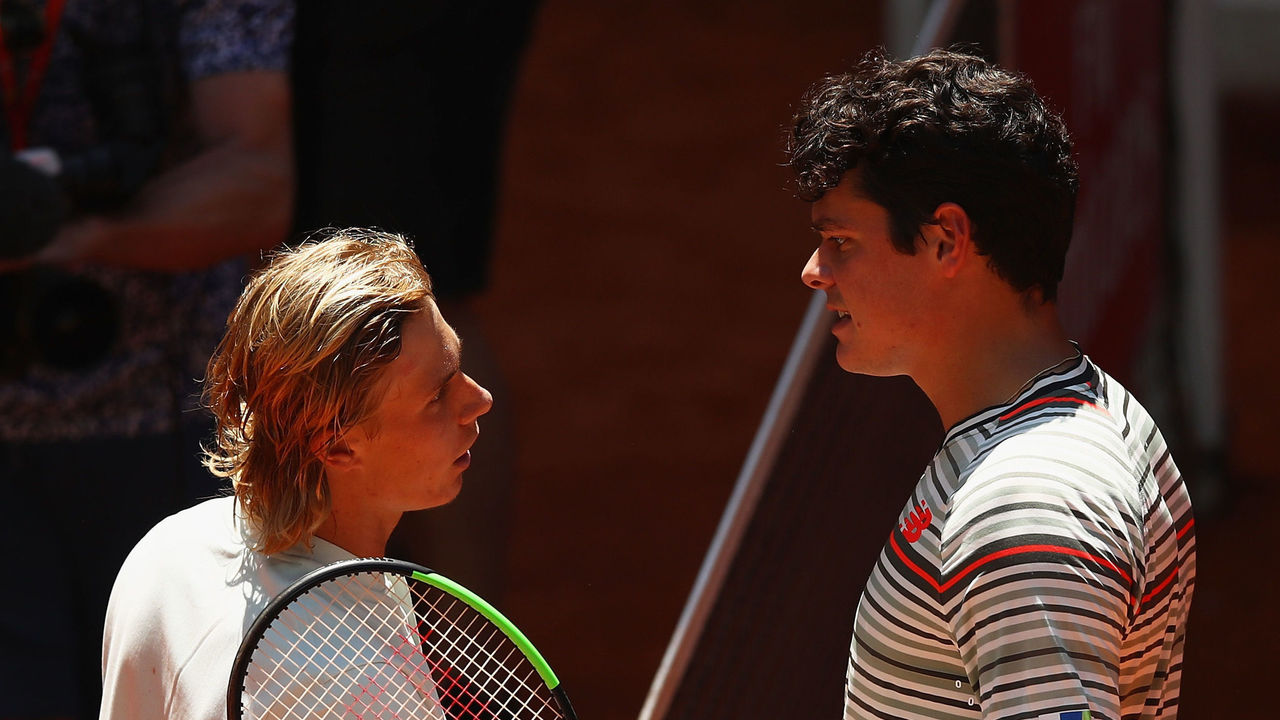At Rogers Cup, the joy and futility of projecting the future
A doubles match rarely stokes much excitement on a tournament grounds, but this was different. This was Denis Shapovalov and Felix Auger-Aliassime, the two prodigious Canadian teenagers, teaming up on home soil at the Rogers Cup in Toronto. And they were taking on Novak Djokovic and Kevin Anderson, two men who'd played each other in the Wimbledon final a few weeks earlier, and who'd combined to reach 24 more Grand Slam singles finals than their green opponents.
The 2,000-seat Grandstand was stuffed to the gills, with an overflow of stragglers at the gates, sporadically pressing forward in a desperate bid for admission. The stadium hummed with the kind of rhythmic, breathless murmur that is equal parts texture and sound. On nearby Court 1, fans perched on the bleacher's upper steps and leaned over the railings to catch a glimpse of their country's tennis future.
A glimpse was all anyone would really get. Though the match started on a promising note for the homegrown teens, who jumped out to a 2-0 lead after cracking Anderson's serve in the opening game, the vets won 12 of the next 14 games, bringing the curtain down on the spectacle in short order. The anticipation of those early-match moments, though, proved to be a precursor to a tournament that's been chock full of NextGen hype.
In Auger-Aliassime's opening match, just the 10th of his career at the tour level, a day before his 18th birthday, he flashed precocious calm, a deadly serve-and-forehand combo, and a punishing second-serve return, all while filleting Lucas Pouille, the 18th-ranked player in the world. Shapovalov picked apart Jeremy Chardy with his typical stylish aggression and took down 14th-ranked Fabio Fognini in a heated second-round match after roaring back from 0-4 down in the second set. Frances Tiafoe, a flashy 20-year-old American, showcased his blazing court coverage and audacious shot-making, especially while taking out Milos Raonic. Karen Khachanov, a 22-year-old with a booming ground game, bludgeoned Robin Haase into oblivion to reach his first Masters 1000 semifinal, where for a set he went toe-to-toe with Rafael Nadal.

And then, of course, there's Stefanos Tsitsipas, the lithe, shaggy-maned, soft-spoken Greek who's had the defining tournament of his young career. He batted aside world No. 8 and French Open finalist Dominic Thiem in the second round, toppled Djokovic in the third (surrendering no breaks of serve against the best returner of all time), came back from 6-3 and 5-2 down to beat defending champ Alexander Zverev in the quarterfinals (a comeback that included two match-point saves), and came back from a set down to beat Anderson (saving another match point in the process, this one with an outrageous backhand winner) in the semis.
At 19 years and 364 days, Tsitsipas became the youngest player to beat four top-10 opponents at a single event in the history of the ATP Tour. Against Anderson, he played to a crowd peppered with Greek flags that was every bit as boisterous as the crowds supporting the Canadians. On his 20th birthday, Tsitsipas will play Nadal, the world No. 1, for the Toronto title.
"I'm very proud of who I am and at such age to do this kind of result, which I never expected," Tsitsipas said. "I always thought it's going to take more years for this to happen."
He's not alone in that feeling of course, and that context is ultimately what made his performances, and those of his contemporaries, so noteworthy. If you watched Tsitsipas play, in a vacuum, you'd likely come away impressed - by his fluidity, variety, easy power, his touch, the precision with which he lasers his backhand down the line - but it wouldn't be the same spectacle if it weren't being couched in the oft-repeated fact that he's only nineteen.
The kid can't believe it any more than you can.
"I'm living the dream," he says. "I'm playing amazing. I'm enjoying it more than ever out on the court with the crowd. ... Four wins against top-10 players. I would never imagine that I could pull this out in a single tournament."
Everything these fledglings do at this juncture feels simultaneously meaningless and momentous; meaningless because their careers have hardly begun, and momentous because everything they do is amplified by the power of imaginative extrapolation. It's like each forehand sends ripples through spacetime, altering future forehands, swinging a player's fate from one pole to the other.

Shapovalov produced that effect last year, when he beat Nadal in Montreal, got on a roll in Flushing Meadows, and was suddenly drawing comparisons to the likes of John McEnroe, Boris Becker, and Nadal himself. Now Tsitsipas is the young phenom du jour. Last week, it was Alex de Minaur. Earlier this year, it was Hyeon Chung. Next week, it could be Andrey Rublev, or Borna Coric, or Jared Donaldson.
In the meantime, we'll keep looking for context clues. Do they have the physical tools? The feel? The attitude? The moxie? How do they handle the big moments? Do they have the Killer Instinct?
A players' game becomes indistinguishable from his personality. We fall in and out of love with the idea of one player or another. The forecast changes from tournament to tournament, from forehand to forehand. It's all a bit whiplash-inducing.
Eventually, things will stabilize.
"There's a period you go through where it changes," Zverev said earlier this week. He's only 21, but exempts himself from the from the cohort of up-and-comers making waves in Toronto after being on tour for four years and winning nine ATP titles - including three Masters titles, more than any active player outside the Big Four. While Shapovalov and company were playing the Next Gen Finals in Milan last year, Zverev was at the grown-up table, playing the ATP Finals in London. Until losing to Tsitsipas, he'd never been beaten by a younger player at the tour level.
"It will change for Denis. It will change for Stefanos," he said. "I think everybody will have to go through that. Right now they're still playing freely. Right now they're still the youngest guys on tour. Right now they don't have any pressure."
For now, it's enthralling to watch these partially realized players take shape before our eyes. There's an element of newness, and of fungibility; of seeing something you're not accustomed to seeing, and watching a player's game evolve in real time. And these particular players have unique qualities to their games: Shapovalov and Tsitsipas with their all-court savvy and slick one-handed backhands, Tiafoe with his explosive movement and wackadoo forehand windup, Auger-Aliassime with his freakish horizontal athleticism. Like most young players, they are frenetic and fast, and do fun and sometimes overexuberant things with their twitchy speed because they haven't yet tamped down their most reckless impulses.
And as much as anything, the excitement in all this lies in not knowing what it portends; in everything that's left to the imagination, in the possibility of being right or spectacularly wrong about the meaning of what we're watching. It's catnip for our compulsive impatience. Who has time for what is, when there's what could be?
While Shapovalov and Auger-Aliassime were getting smoked in doubles at the start of the week, Raonic - the 27-year-old granddad in this era of Canadian men's tennis - was beating David Goffin on centre court to far less enthusiastic fanfare. Raonic is a consummate pro and a tireless worker who, at his still-tender age, has already had an enviable career by most measures. He's won eight ATP titles, made eight Grand Slam quarterfinals, three Slam semis, a Wimbledon final, and three Masters 1000 finals. He's been ranked as high as No. 3 in the world and made over $17 million in prize money. Tennis Canada would not be what it is today without him. And yet, even on home turf, he's often met with shrugs.

There are reasons for the lukewarm reception beyond viewer fatigue, one being that Raonic's game is stiff and predictable compared to the limber and creative stylings of his younger opponents. But the reality is that for as successful as he's been, Raonic's career is not what people envision when they buzz about the potential futures of the players who've energized this Rogers Cup.
There's a practical reason for all the fanciful prognosticating, too, which is that men's tennis somehow still hasn't found the heirs to its golden generation. No player born after 1988 has won a Grand Slam. The so-called lost generation, headlined by Raonic, Grigor Dimitrov, and Kei Nishikori, remains in the wilderness. Nadal and Roger Federer still rule the sport, and Djokovic appears set to rejoin them atop the hill.
"This sport definitely needs it," Anderson said of the recent infusion of young talent. "The whole NextGen initiative has been really, really amazing."
Of course, not all of these guys will cover themselves in glory. Some of them, if they're lucky, will end up being Raonic, in substance if not style. But some of them, one presumes, will take over men's tennis. Because eventually someone has to. We just don't know who, or how, or when.
Nadal will continue to have something to say about that, starting on Sunday. He was just 19 when he beat a 35-year-old Andre Agassi to win the 2005 Rogers Cup. Now, he's on the other side, going for his 80th career ATP title and trying to prevent Tsitsipas from winning his first.
"It feels better when you are younger," Nadal joked. "But no complaints. (In) 2005, I never imagined that I'm going to have this kind of career that I am having."
Of course not. Who would ever dare imagine having the kind of career Nadal is having? And yet, here he is, having this unimaginable career. We couldn't have known, but now we do.
At some point in the future, we, who have no idea how this all turns out, will know exactly how it all turned out. On Sunday, though, when Nadal and Tsitsipas square off in the Rogers Cup final, there will be no need to live anywhere but in the present.